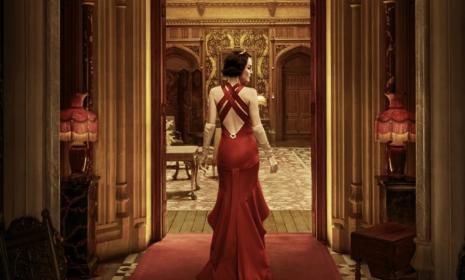Film reviews, news & interviews
Blu-ray: The Sons of Great Bear
Tuesday, 16 September 2025
Westerns had long been popular with German cinema audiences, some of the most successful being early 1960s West German adaptations of novels by Karl May, a slippery late-19th writer whose books were hugely admired by Hitler. East Germany’s state-run studio DEFA responded by producing The Sons of Great Bear (Die Söhne der großen Bärin) in 1966, the first of East Germany’s "Indianerfilme".
Spinal Tap II: The End Continues review - comedy rock band fails to revive past glories
Monday, 15 September 2025
That difficult second documentary – or if you will, “rockumentary” – seems to have been especially challenging for Spinal Tap, since it arrives no less than 41 years after its predecessor, This Is Spinal Tap. The latter has become renowned as a definitive artefact in rock’n’roll history, a smartly deadpan portrayal of a deeply cretinous British heavy metal band in the throes of a shambolic American tour.
Subscribe to theartsdesk.com
Thank you for continuing to read our work on theartsdesk.com. For unlimited access to every article in its entirety, including our archive of more than 15,000 pieces, we're asking for £5 per month or £40 per year. We feel it's a very good deal, and hope you do too.
To take a subscription now simply click here.
And if you're looking for that extra gift for a friend or family member, why not treat them to a theartsdesk.com gift subscription?
Footnote: a brief history of British film
England was movie-mad long before the US. Contrary to appearances in a Hollywood-dominated world, the celluloid film process was patented in London in 1890 and by 1905 minute-long films of news and horse-racing were being made and shown widely in purpose-built cinemas, with added sound. The race to set up a film industry, though, was swiftly won by the entrepreneurial Americans, attracting eager new UK talents like Charlie Chaplin. However, it was a British film that in 1925 was the world's first in-flight movie, and soon the arrival of young suspense genius Alfred Hitchcock and a new legal requirement for a "quota" of British film in cinemas assisted a golden age for UK film. Under the leadership of Alexander Korda's London Films, Hitchcock's Blackmail (1929) is considered the first true sound movie, documentary techniques developed and the first Technicolor movies were made.
Brief_EncounterWhen war intervened, British filmmakers turned effectively to lean, effective propaganda documentaries and heroic, studio-based war-films. After Hitchcock too left for Hollywood, David Lean launched into an epic career with Brief Encounter (pictured), Powell and Pressburger took up the fantasy mantle with The Red Shoes, while Carol Reed created Anglo films noirs such as The Third Man. Fifties tastes were more domestic, with Ealing comedies succeeded by Hammer horror and Carry-Ons; and more challenging in the Sixties, with New Wave films about sex and class by Lindsay Anderson, Joseph Losey and Tony Richardson. But it was Sixties British escapism which finally went global: the Bond films, Lean's Dr Zhivago, Mary Poppins and The Sound of Music made Sean Connery, Julie Christie and Julie Andrews Hollywood's top stars.
In the 1970s, recession and the TV boom undermined cinema-going and censorship changes brought controversy: a British porn boom and scandals over The Devils, Straw Dogs and A Clockwork Orange. While Hollywood fielded Spielberg, Coppola and Scorsese epics, Britain riposted with The Killing Fields, Chariots of Fire and Gandhi, but 1980s recession dealt a sharp blow to British cinema, and the Rank Organisation closed, after more than half a century. However more recently social comedies such as Four Weddings and a Funeral and The Full Monty, and royal dramas such as The Queen and The King's Speech have enhanced British reputation for wit, social observation and character acting.
As more films are globally co-produced, the success of British individual talents has come to outweigh the modest showing of the industry itself. Every week The Arts Desk reviews latest releases as well as leading international film festivals, and features in-depth career interviews with leading stars. Its writers include Jasper Rees, Graham Fuller, Anne Billson, Nick Hasted, Alexandra Coghlan, Veronica Lee, Emma Simmonds, Adam Sweeting and Matt Wolf
The future of Arts Journalism
You can stop theartsdesk.com closing!
We urgently need financing to survive. Our fundraising drive has thus far raised £49,000 but we need to reach £100,000 or we will be forced to close. Please contribute here: https://gofund.me/c3f6033d
And if you can forward this information to anyone who might assist, we’d be grateful.

latest in Today
 'We are bowled over!' Thank you for your messages...
'We are bowled over!' Thank you for your messages...















































